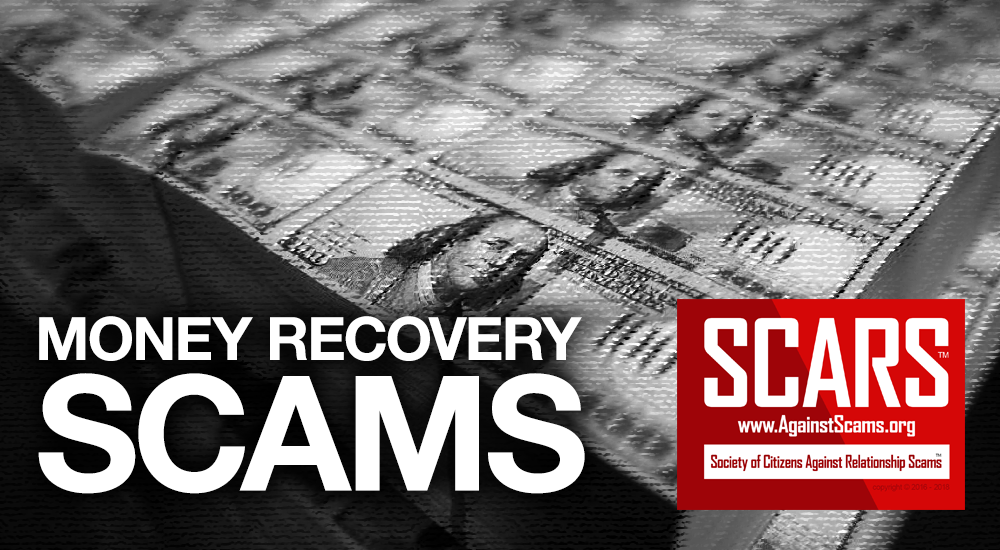
SCARS Institute’s Encyclopedia of Scams™ Published Continuously for 25 Years

SCARS Next Steps™ – You Gave The Scammer Your Information?
NOTE: THIS GUIDE IS PRIMARILY FOR AMERICAN VICTIMS, HOWEVER, THE PROCESS APPLIES TO MANY COUNTRIES
You Gave The Scammer Your Id And Maybe Even Access To Your Banking Or Credit Cards?
NOW WHAT DO YOU DO?
First, let us say you are not alone. A significant number of scam victims give their scammers all kinds of personal information about themselves.
However, this now presents some very severe risks to you. The exact nature of the risks depends on what information you gave to your scammer.
If you gave your address, you do not really have to worry about the scammers coming in the middle of the night – they are scammers – they lie for a living. But if you are fearful contact your local police about this.
The greater danger is what they can do with this information.
Understanding Identity Theft and How It Affects Scam Victims
Each year, millions discover that a criminal has fraudulently used their personal information to obtain goods and services and that they have become victims of identity theft.
Under U.S. federal law, identity theft occurs when someone uses or attempts to use the sensitive personal information of another person to commit fraud. A wide range of sensitive personal information can be used to commit identity theft, including a person’s name, address, date of birth, Social Security number (SSN), driver’s license number, credit card and bank account numbers, phone numbers, and even biometric data like fingerprints and iris scans. Other countries have similar laws.
Essential Links:
- FTC Identity Theft Complaint
- FTC Complete Identity Theft Website: www.IdentityTheft.gov
- Taxpayer Guide to Identity Theft
- Identity Theft at USA.gov
New & Existing Financial Accounts
The most common form of identity theft, and the main focus of this article, involves the fraudulent use of a victim’s personal information for financial gain.
THERE ARE TWO MAIN TYPES OF SUCH FINANCIAL FRAUDS:
- Using the victim’s existing credit, bank, or other accounts
- A victim of existing account misuse often can resolve problems directly with the financial institution, which will consider the victim’s prior relationship with the institution and the victim’s typical spending and payment patterns.
- Opening new accounts in the victim’s name
- A victim of new account identity theft usually has no preexisting relationship with the creditor to help prove the victim is not responsible for the debts.
- The new account usually is reported to one or more credit reporting agencies (CRA), where it then appears on the victim’s credit report. Since the thief does not pay the bills, the account goes to collections and appears as a bad debt on the victim’s credit report. Often, the victim does not discover the existence of the account until it is in collection.
- The victim must prove to the creditor that the victim is not responsible for the account and clear the bad debt information from the victims’ credit report.
MANY TIMES VICTIMS EXPERIENCE BOTH!
The Goals for Victims
Before you begin all of this, you need to prepare yourself for what might happen. You may be lucky and nothing happens, but if it did or does you are going to spend a substantial amount of time working through it. You will have to learn a great amount of information, follow new and confusing processes, and be very careful in your record keeping. But eventually, just like with the scam itself, you will make it through the other side.
This Guide will help you assist a victim achieve three goals:
- Stopping or minimizing further fraud from occurring
- Proving that identity theft has occurred and that the victim is not responsible for debts incurred in her name and
- Correcting any errors on the victim’s credit report to restore their financial reputation and credit score
Step 1: Notify Your Bank And Credit Card Company
If a scammer was given your banking information or credit card information then they can use that information to steal from your account or illegally buy things on your credit card. A huge number of victims do this, and the products purchased with the stolen card numbers or banking information are sent to parcel mules or trans-shippers. If you gave the information away you must report this to the police or you could face liability for the use of your accounts and the purchases. This could lead to money laundering, bank fraud, credit card fraud, or other charges.
Be very clear with your financial institutions. Tell them you were scammed and give them the police report number. (You got that in the SCARS 3 Steps that you read – remember?)
If you have not reported the scam to the police, do it right now! This is very serious and you must do it.
Step 2: Realize You Are Now Dealing With Possible Identity Theft
What is identity theft?
Identity theft occurs when someone uses your personal information such as your name, Social Security number (SSN) or other identifying information, without your permission, to commit fraud or other crimes. In the case of scam victims, you may have given this information to your scammer.
Step 3: Your Tax Records Can Be Affected & May Be At Risk
How do you know if your tax records have been affected?
Usually, a scammer or an identity thief uses a legitimate taxpayer’s identity to fraudulently file a tax return and claim a refund. Generally, the identity thief will use a stolen SSN to file a forged tax return and attempt to get a fraudulent refund early in the filing season. Yes, scammers do this!
You may be unaware that this has happened until you file your tax return later in the filing season and discover that two returns have been filed using the same social security or tax identification.
Be alert to possible identity theft if you receive an IRS or TAX notice or letter that states that:
- More than one tax return for you was filed,
- You have a balance due, refund offset or have had collection actions taken against you for a year you did not file a tax return, or
- IRS records indicate you received wages from an employer unknown to you.
What to do if your tax records were affected by identity theft?
If you receive a notice from IRS or your TAX agency, respond immediately. If you believe someone may have used your SSN fraudulently, please notify IRS or your TAX agency immediately (after reporting the scam to your police) by responding to the name and number printed on the notice or letter. If you live in the U.S. you will need to fill out the IRS Identity Theft Affidavit, Form 14039.
For victims of identity theft who have previously been in contact with the IRS and have not achieved a resolution, please contact the IRS Identity Protection Specialized Unit, toll-free at 1-800-908-4490
How can you protect your tax records?
If your tax records are not currently affected by identity theft, but you believe you may be at risk due to a lost/stolen purse or wallet, questionable credit card activity or credit report, etc., contact the IRS Identity Protection Specialized Unit at 1-800-908-4490 or the equivalent in your country.
Learn more: https://www.irs.gov/newsroom/taxpayer-guide-to-identity-theft
Step 4: Your Credit Files
Placing an Initial Fraud Alert
Placing an initial fraud alert on credit reports will reduce the risk that an identity thief will open new accounts in the victim’s name. An initial fraud alert stays on the victim’s credit file for 90 days, and can be renewed every 90 days. Identity theft victims can place an initial 90-day fraud alert by contacting one of the following three CRAs (Credit Reporting Agencies).
That CRA must, in turn, contact the other two CRAs on the victim’s behalf:
- Experian
1-888-EXPERIAN (397-3742)
www.experian.com
P.O. Box 9532, Allen, TX 75013 - Transunion
1-800-680-7289
www.transunion.com
Fraud Victim Assistance Division
P.O. Box 6790, Fullerton, CA 92834-6790 - Equifax
1-800-525-6285
www.equifax.com
P.O. Box 740241
Atlanta, GA 30374-0241
Note: A CRA may request additional proof of identity to place the initial fraud alert, and it may ask you to answer challenge questions–information in her credit report that only the victim would be expected to know.
If you experienced new account identity theft, you should consider placing a credit freeze on the credit report.
Getting Copies of Credit Reports
Once you HAVE placed an initial fraud alert on her credit report, the victim is entitled to a free credit report from each of the three CRAs. These free copies of credit reports are in addition to free copy all consumers have a right to each year.
After placing a fraud alert on the credit report, you should receive a confirmation letter from each CRA advising you on how to order a free credit report. Some CRAs may allow the victim to place the fraud alert online. If so, you may be able to order and view the credit report online immediately upon placing the fraud alert. If the victim does not receive a CRA’s confirmation letter, you should contact the CRA directly.
Note: When a victim places a fraud alert on a credit report, the CRA may offer to sell the victim products or services, such as credit monitoring or identity theft insurance. These are optional, and a victim never has to pay anything for a fraud alert or credit file freeze.
Later, when the victim calls the CRA to order the free credit report you are entitled to in conjunction with the fraud alert, the CRA may first direct the victim’s attention to ordering the victim’s free annual credit report, before explaining how you can order the one associated with the fraud alert. This can confuse victims and lead to ordering the free annual report rather than the credit report that is yours by right after placing a fraud alert. Just insist you want the credit report you are entitled to after placing the fraud alert.
Review The Credit Report Carefully
Victims should review their credit report for any accounts they did not open, debts they did not incur, and credit inquiries from companies they have not contacted. They should promptly contact any companies where their credit report indicates this has occurred – see the Recovery Guide below.
Step 5: Documenting the New Crime
You should immediately have filed a police report about the scam, but now you have to consider reporting Identity Theft if you find that your financial information has been used.
Reporting To The Federal Trade Commission
If you have experienced new account identity theft, the next phase in your recovery will be to document this crime. Such documentation will be necessary to prove to a creditor that you are
not responsible for the fraudulent new account or to exercise certain legal rights, such as clearing fraudulent accounts from your credit report and prohibiting creditors from selling the fraudulent debts. Specifically, you may need an “Identity Theft Affidavit” or an Identity Theft Report.
Below are steps you can take to prepare for obtaining these documents.
File a Complaint with the FTC
- The first step in documenting identity theft is to file a complaint with the FTC. You can file a complaint online at https://www.ftccomplaintassistant.gov/
- Before filing the complaint, the victim should gather as much information as possible about the details of the identity theft crime. This would include a credit report from at least one of the three major CRAs, any collection letters or bills you received for accounts you did not open or charges you did not authorize, and any credit cards or other items you received, but had not ordered.
- The complaint asks for the following information:
- the victim’s full name, any other or previously used names
- current and/or recent address and the address at the time the crime occurred, if different from the current address
- Social Security number
- date of birth
- what the victim knows about who committed the crime or how her information was stolen
- what the victim knows about the fraudulent transactions, including institution names, types of account or transactions involved, account numbers, dates the accounts were opened or misused, and dollar amounts related to the fraudulent activity
- whether the victim has been able to obtain a police report, and if so, the details. Note: It is important to note that victims are not required to file a written complaint with the
FTC to pursue their legal rights to remedy identity theft. Victims who do not want to provide their personal information can file their complaints with the FTC anonymously.
- Victims also have the option of filing a complaint by phone or mail, but will not receive a printed copy:
- BY PHONE – FTC Identity Theft Hotline, toll-free: 1-877-ID-Theft (438-4338); TTY: 1-866-653-4261
- BY MAIL – Identity Theft Clearinghouse, Federal Trade Commission, 600 Pennsylvania Avenue, NW, Washington, DC 20580
The FTC does not investigate or prosecute individual identity theft cases. The FTC enters the complaints into its Consumer Sentinel Network and makes them available to enforcement agencies throughout the country for their investigations. The complaints also help the FTC identify general trends in identity theft and violations of the FCRA.
Prepare an FTC Identity Theft Affidavit
Next, you should prepare an Identity Theft Affidavit, which many creditors accept to dispute fraudulent new accounts. It also will assist you in preparing an Identity Theft Report, as explained below.
By completing the FTC complaint online, you will be then able to print a copy of the Affidavit, with most of the information filled in automatically. Specifically, after you have completed the online complaint’s guided interview process and have hit the “Submit” button, a page will appear that will provide a link to print the Affidavit for saving or printing. Alternatively, victims can print a
blank copy of the Identity Theft Affidavit. The Affidavit contains a block for notarization or a witness signature.
You may wish to fill in the Identity Theft Affidavit form by hand as well to prepare and review the facts before doing it online.
Back To File Another Local Police Report
The next step in documenting identity theft is to obtain an “Identity Theft Report,” which will
enable the victim to:
- Take advantage of certain rights provided under the FCRA law in the U.S.
- Obtain a company’s business records related to its transactions with the identity thief
An Identity Theft Report is a police report that contains information specific enough for a CRA or creditor to determine the legitimacy of the identity theft claims. This usually is more detailed than a typical police report and best accomplished by filing a local police report and attaching or incorporating the information from the Identity Theft Affidavit.
You should bring a copy of the FTC ID Theft Affidavit, as well as documentation supporting the proof of identity and evidence of the crime. The goal is to get a copy of a police report (and a NEW report Number) that incorporates as much detail as possible about the facts of the crime. You can request that the police attach or incorporate the Identity Theft Affidavit to the department’s
basic police report form. There are signature blocks on the Affidavit for the victim and the officer.
If you have filed the original scam Police Report, they may choose to expand the report, but it is advisable to create a new report referencing the other one.
If possible, you should file the Identity Theft report with the local police in person. Police sometimes are reluctant to provide victims with a police report. Although some states require police to
write reports for identity theft crimes, in other jurisdictions, the officials may feel that they have higher priority matters to handle, or may not understand the importance of the police report in
victim recovery. If you have difficulty obtaining a police report, tell them that you must have it for needed benefits or your insurance.
Once you obtain an Identity Theft Report, you will be able to prevent most further harm (as in liability) and restore her financial reputation.
Step 6: Your Recovery Plan
Identity Theft Is A Nasty Experience, And Cannot Be Ignored Once You See That It Has Happened
Once you see proof of the Identity Theft, recovery is going to be a challenge, but the following Guide from the FTC explains it all in detail.
[pdf-embedder url=”https://romancescamsnow.com/wp-content/uploads/2020/08/pdf-0009_identitytheft_a_recovery_plan.pdf”]NOTICE:
We have published the latest information on this subject but you should also visit the FTC’s website for the most up to date information: www.IdentityTheft.gov
TAGS: SCARS, Scammer Identity Theft. Personal Identity Theft, Anti-Scam, Scams, Scammers, Fraudsters, Cybercrime, Crybercriminals, Romance Scams, Scam Victims,
SCARS™ Team
Society of Citizens Against Relationship Scams Inc.
A Worldwide Crime Victims Assistance Nonprofit Organization
Visit: www.AgainstScams.org
Contact Us: Contact@AgainstScams.org
PLEASE SHARE OUR ARTICLES WITH YOUR FRIENDS & FAMILY
HELP OTHERS STAY SAFE ONLINE – YOUR KNOWLEDGE CAN MAKE THE DIFFERENCE!
The Latest SCARS Posts:
FIND MORE SCAM NEWS
«SCAMCRIME.COM»
JOIN US ON FACEBOOK
«CLICK HERE»
END
MORE INFORMATION
– – –
Tell us about your experiences with Romance Scammers in our
« Scams Discussion Forum on Facebook »
– – –
FAQ: How Do You Properly Report Scammers?
It is essential that law enforcement knows about scams & scammers, even though there is nothing (in most cases) that they can do.
Always report scams involving money lost or where you received money to:
- Local Police – ask them to take an “informational” police report – say you need it for your insurance
- U.S. State Police (if you live in the U.S.) – they will take the matter more seriously and provide you with more help than local police
- Your National Police or FBI « www.IC3.gov »
- The SCARS|CDN™ Cybercriminal Data Network – Worldwide Reporting Network on « www.Anyscam.com »
This helps your government understand the problem, and allows law enforcement to add scammers on watch lists worldwide.
– – –
To learn more about SCARS visit « www.AgainstScams.org »
Please be sure to report all scammers
on « www.Anyscam.com »
Disclaimer:
SCARS IS A DIGITAL PUBLISHER AND DOES NOT OFFER HEALTH OR MEDICAL ADVICE, LEGAL ADVICE, FINANCIAL ADVICE, OR SERVICES THAT SCARS IS NOT LICENSED OR REGISTERED TO PERFORM.
IF YOU’RE FACING A MEDICAL EMERGENCY, CALL YOUR LOCAL EMERGENCY SERVICES IMMEDIATELY, OR VISIT THE NEAREST EMERGENCY ROOM OR URGENT CARE CENTER. YOU SHOULD CONSULT YOUR HEALTHCARE PROVIDER BEFORE FOLLOWING ANY MEDICALLY RELATED INFORMATION PRESENTED ON OUR PAGES.
ALWAYS CONSULT A LICENSED ATTORNEY FOR ANY ADVICE REGARDING LEGAL MATTERS.
A LICENSED FINANCIAL OR TAX PROFESSIONAL SHOULD BE CONSULTED BEFORE ACTING ON ANY INFORMATION RELATING TO YOUR PERSONAL FINANCES OR TAX RELATED ISSUES AND INFORMATION.
This content and other material contained on the website, apps, newsletter, and products (“Content”), is general in nature and for informational purposes only and does not constitute medical, legal, or financial advice; the Content is not intended to be a substitute for licensed or regulated professional advice. Always consult your doctor or other qualified healthcare provider, lawyer, financial, or tax professional with any questions you may have regarding the educational information contained herein. SCARS makes no guarantees about the efficacy of information described on or in SCARS’ Content. The information contained is subject to change and is not intended to cover all possible situations or effects. SCARS does not recommend or endorse any specific professional or care provider, product, service, or other information that may be mentioned in SCARS’ websites, apps, and Content unless explicitly identified as such.
The disclaimers herein are provided on this page for ease of reference. These disclaimers supplement and are a part of SCARS’ website’s Terms of Use.
Legal Notices:
All original content is Copyright © 1991 – 2020 Society of Citizens Against Relationship Scams Inc. (D.B.A SCARS) All Rights Reserved Worldwide & Webwide. Third-party copyrights acknowledge.
SCARS, SCARS|INTERNATIONAL, SCARS, SCARS|SUPPORT, SCARS, RSN, Romance Scams Now, SCARS|INTERNATION, SCARS|WORLDWIDE, SCARS|GLOBAL, SCARS, Society of Citizens Against Relationship Scams, Society of Citizens Against Romance Scams, SCARS|ANYSCAM, Project Anyscam, Anyscam, SCARS|GOFCH, GOFCH, SCARS|CHINA, SCARS|CDN, SCARS|UK, SCARS|LATINOAMERICA, SCARS|MEMBER, SCARS|VOLUNTEER, SCARS Cybercriminal Data Network, Cobalt Alert, Scam Victims Support Group, are all trademarks of Society of Citizens Against Relationship Scams Inc., All Rights Reserved Worldwide
Contact the law firm for the Society of Citizens Against Relationship Scams Incorporated by email at legal@AgainstScams.org
-/ 30 /-
What do you think about this?
Please share your thoughts in a comment below!
Table of Contents
- You Gave The Scammer Your Id And Maybe Even Access To Your Banking Or Credit Cards?
- NOW WHAT DO YOU DO?
- The greater danger is what they can do with this information.
- New & Existing Financial Accounts
- How do you know if your tax records have been affected?
- Be alert to possible identity theft if you receive an IRS or TAX notice or letter that states that:
- What to do if your tax records were affected by identity theft?
- How can you protect your tax records?
- Placing an Initial Fraud Alert
- Getting Copies of Credit Reports
- Reporting To The Federal Trade Commission
- Back To File Another Local Police Report
- Ethereum ETHM Token Trap and Pig Butchering Scams – 2026
- New U.S. Law – S.3643 – 118th Congress – Will Dramatically Impact Scammers and Terrorists – 2026
- How Scam Survivors Can Survive Valentine’s Day – 2026
- U.S. Veterans Benefits Scams – 2026
- New AI Voice Cloning Phone Scams – 2026
- An Essay on Justice and Money Recovery – 2026
LEAVE A COMMENT?
Thank you for your comment. You may receive an email to follow up. We never share your data with marketers.
Recent Comments
On Other Articles
- on Love Bombing And How Romance Scam Victims Are Forced To Feel: “I was love bombed to the point that I would do just about anything for the scammer(s). I was told…” Feb 11, 14:24
- on Dani Daniels (Kira Lee Orsag): Another Scammer’s Favorite: “You provide a valuable service! I wish more people knew about it!” Feb 10, 15:05
- on Danielle Delaunay/Danielle Genevieve – Stolen Identity/Stolen Photos – Impersonation Victim UPDATED 2024: “We highly recommend that you simply turn away form the scam and scammers, and focus on the development of a…” Feb 4, 19:47
- on The Art Of Deception: The Fundamental Principals Of Successful Deceptions – 2024: “I experienced many of the deceptive tactics that romance scammers use. I was told various stories of hardship and why…” Feb 4, 15:27
- on Danielle Delaunay/Danielle Genevieve – Stolen Identity/Stolen Photos – Impersonation Victim UPDATED 2024: “Yes, I’m in that exact situation also. “Danielle” has seriously scammed me for 3 years now. “She” (he) doesn’t know…” Feb 4, 14:58
- on An Essay on Justice and Money Recovery – 2026: “you are so right I accidentally clicked on online justice I signed an agreement for 12k upfront but cd only…” Feb 3, 08:16
- on The SCARS Institute Top 50 Celebrity Impersonation Scams – 2025: “Quora has had visits from scammers pretending to be Keanu Reeves and Paul McCartney in 2025 and 2026.” Jan 27, 17:45
- on Scam Victims Should Limit Their Exposure To Scam News & Scammer Photos: “I used to look at scammers photos all the time; however, I don’t feel the need to do it anymore.…” Jan 26, 23:19
- on After A Scam, No One Can Tell You How You Will React: “This article was very informative, my scams happened 5 years ago; however, l do remember several of those emotions and/or…” Jan 23, 17:17
- on Situational Awareness and How Trauma Makes Scam Victims Less Safe – 2024: “I need to be more observant and I am practicing situational awareness. I’m saving this article to remind me of…” Jan 21, 22:55
ARTICLE META
Important Information for New Scam Victims
- Please visit www.ScamVictimsSupport.org – a SCARS Website for New Scam Victims & Sextortion Victims
- Enroll in FREE SCARS Scam Survivor’s School now at www.SCARSeducation.org
- Please visit www.ScamPsychology.org – to more fully understand the psychological concepts involved in scams and scam victim recovery
If you are looking for local trauma counselors please visit counseling.AgainstScams.org or join SCARS for our counseling/therapy benefit: membership.AgainstScams.org
If you need to speak with someone now, you can dial 988 or find phone numbers for crisis hotlines all around the world here: www.opencounseling.com/suicide-hotlines
A Note About Labeling!
We often use the term ‘scam victim’ in our articles, but this is a convenience to help those searching for information in search engines like Google. It is just a convenience and has no deeper meaning. If you have come through such an experience, YOU are a Survivor! It was not your fault. You are not alone! Axios!
A Question of Trust
At the SCARS Institute, we invite you to do your own research on the topics we speak about and publish, Our team investigates the subject being discussed, especially when it comes to understanding the scam victims-survivors experience. You can do Google searches but in many cases, you will have to wade through scientific papers and studies. However, remember that biases and perspectives matter and influence the outcome. Regardless, we encourage you to explore these topics as thoroughly as you can for your own awareness.
Statement About Victim Blaming
SCARS Institute articles examine different aspects of the scam victim experience, as well as those who may have been secondary victims. This work focuses on understanding victimization through the science of victimology, including common psychological and behavioral responses. The purpose is to help victims and survivors understand why these crimes occurred, reduce shame and self-blame, strengthen recovery programs and victim opportunities, and lower the risk of future victimization.
At times, these discussions may sound uncomfortable, overwhelming, or may be mistaken for blame. They are not. Scam victims are never blamed. Our goal is to explain the mechanisms of deception and the human responses that scammers exploit, and the processes that occur after the scam ends, so victims can better understand what happened to them and why it felt convincing at the time, and what the path looks like going forward.
Articles that address the psychology, neurology, physiology, and other characteristics of scams and the victim experience recognize that all people share cognitive and emotional traits that can be manipulated under the right conditions. These characteristics are not flaws. They are normal human functions that criminals deliberately exploit. Victims typically have little awareness of these mechanisms while a scam is unfolding and a very limited ability to control them. Awareness often comes only after the harm has occurred.
By explaining these processes, these articles help victims make sense of their experiences, understand common post-scam reactions, and identify ways to protect themselves moving forward. This knowledge supports recovery by replacing confusion and self-blame with clarity, context, and self-compassion.
Additional educational material on these topics is available at ScamPsychology.org – ScamsNOW.com and other SCARS Institute websites.
Psychology Disclaimer:
All articles about psychology and the human brain on this website are for information & education only
The information provided in this article is intended for educational and self-help purposes only and should not be construed as a substitute for professional therapy or counseling.
While any self-help techniques outlined herein may be beneficial for scam victims seeking to recover from their experience and move towards recovery, it is important to consult with a qualified mental health professional before initiating any course of action. Each individual’s experience and needs are unique, and what works for one person may not be suitable for another.
Additionally, any approach may not be appropriate for individuals with certain pre-existing mental health conditions or trauma histories. It is advisable to seek guidance from a licensed therapist or counselor who can provide personalized support, guidance, and treatment tailored to your specific needs.
If you are experiencing significant distress or emotional difficulties related to a scam or other traumatic event, please consult your doctor or mental health provider for appropriate care and support.
Also read our SCARS Institute Statement about Professional Care for Scam Victims – click here to go to our ScamsNOW.com website.






















Been coresponding with some one who claims to be the real David Dean Thompson . He also thinks that im very cute etc. for him.. and said he was the real us air force general of the USA and hes been texting me back n forth on another email account and sent me photos of him with his militay badge and mos number saying that he is working in damascus syria battlefield and is retiring in 4 month and would like to show up on my door step. and get together with me. he said hes 60 years old born feb 18 th 1963 from ambridge pennsylvania with a 14 year old son . and was getting out of a 18 year mirrage and all those other DT friend request was scammers.. and to block. All though he doesnt ask me of anything and has the fbi working on everything to catch fake photo scammers of him . And hes been asking me if I would like to have a good relationship etc. with him in life and be his cause he likes me . and hes been sending me gifts and was just wondering if this is the Real DT i been talking with online and phone Can someone please let me know of what im getting into? He seams like a very nice Christian guy and knows the bible very well. and tells me all about his life and when he gotten married at 35 years of age and came back here to the USA and found out that his wife had cheated on him and the other 2 kids arent his.. And he told me about how he was raised up and his parents name and had started at a young age into the military busines etc. and hes roman catholic and this talking goes on and on and he even tells me about his dog and said ill love her when I get to meet them.. and he types at me with sending me good songs and I can type forever on here but Im just wondering who my secrete admire realy is. ?? im just 53 and dont at all have of any one.. Can someone please let me know if this is all for real or on of how to find this here real person (D.T). David Dean Thompson.. Thanks.. God Bless..Everyone..Hes also trying to care for me cause I gotten down so depressed that i cut my wrist and was trying to end everything.. awhile back..
Melinda, we are so sorry this happened to you. Remember, that if you ever need to talk with someone day or night please call 988 in the US/Canada
There is not secret admirer. Scammers work in teams, so it was a team that lured you in, groomed you, manipulated and controlled you. There is no ‘he/him’ – it is a they. They are criminals only after your money. You are one of over 50 million other romance scam victims,
However, you can get through this.
Please read our 3 Steps Guide for New Scam Victims here: https://romancescamsnow.com/dating-scams/information-for-new-scam-victims-2/ it will help you get started on the road to recovery.
You are also welcome to sign up for our support groups – they are free, safe, and confidential. Just go to https://support.AgainstScams.org
Please take care of yourself. We are here for you.